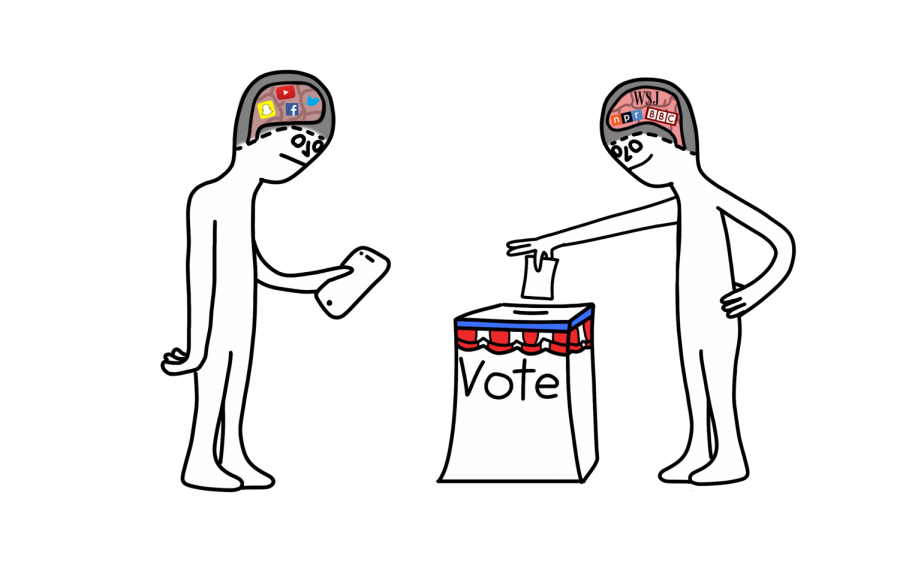As memes and click bait continue to stay prevalent in our day to day media consumption, longer and more informative news coverage begins to fall through the cracks.
News is taken in like Happy Meals: quickly and with very little nutritional value — or in this case, cognitive value. Yes, Kanye West visited the White House, but what about the lives still devastated by Hurricane Matthew? Mass populations now consume information through short sound bytes of what entertain rather than inform.
The line that had once existed between social media and news consumption has been blurred. The reality stars and social media megaminds once relegated to the pages of People Magazine or Buzzfeed are now featured alongside world leaders in our most prestigious news sources. Even mainstream media leaders such as The Washington Post and the New York Times are now forced to rethink their business decisions and therefore reinvent the meaning of the word “news.” These media leaders are compelled to jump on the fast media bandwagon and are now just as likely to publish the newest trend as they are to post about the US economy. This is not the fault of the journalist institutions themselves but rather the social media culture that has grown over the years.
With the fast pace consumption of media through Snapchat, Instagram and Twitter, people don’t have the attention spans for more important news content. So used to the short sound bytes of information fed to them by these social media monarchs, most people are not willing to read more than a paragraph of a full article.
So if you have read this far, you’re in the informed minority.
Today, Buzzfeed is becoming the face of new media and The New York Times is slowing dying and populations transition from reading articles to scanning headlines. Clickbait headlines lure readers into black hole where trivial celebrity news overrides information of world issues and event.
“What’s scary is you don’t want your news to be clickbait,” history teacher Brian Brown said. “You want your journalists to be pursuing truth no matter where it is, whether it’s appealing or has any celebrity attachment.”
In an era of fast media culture, news articles are not solely printed each week, but instead, new posts are being published 24 hours a day and seven days a week, giving little time for deep understanding and thorough research and instead pointing toward surface comprehension.
With such little time to consume all this information, something must be cut short: the quality of the news itself. For example, it is much easier for mass populations to read about Kim’s butt implants than it is to learn about The Syrian Civil War.
Although scrolling the Instagram Explore page or a taking a daily Buzzfeed quiz won’t turn readers into utterly uninformed space cadets, these clicks and purchases determine what journalists will continue to publish, thus putting the power in the hands of the readers.
But why should readers care that their world news knowledge consists of the trendiest nail polish color or the newest celebrity breakup? Trinity students, along with students across the country, will soon be given the responsibility to vote for the officials that represent their voices. Being informed on the events happening around the country, as well as around the globe, gives voters the ability to understand the issues that these officials stand for. If those in leaderships positions realize that voters are watching and understanding the events occuring, they will be more likely to follow a moral standard and thus make decisions with the intention of serving the public good. As readers, we must remember that those with knowledge are those with power.











